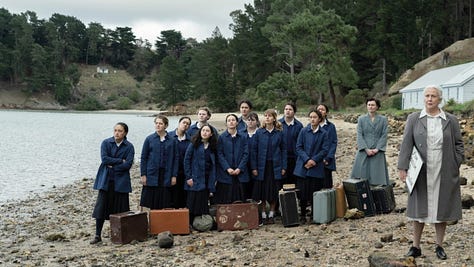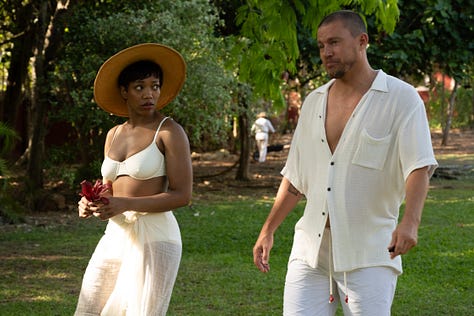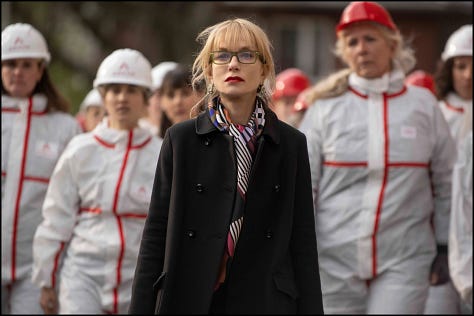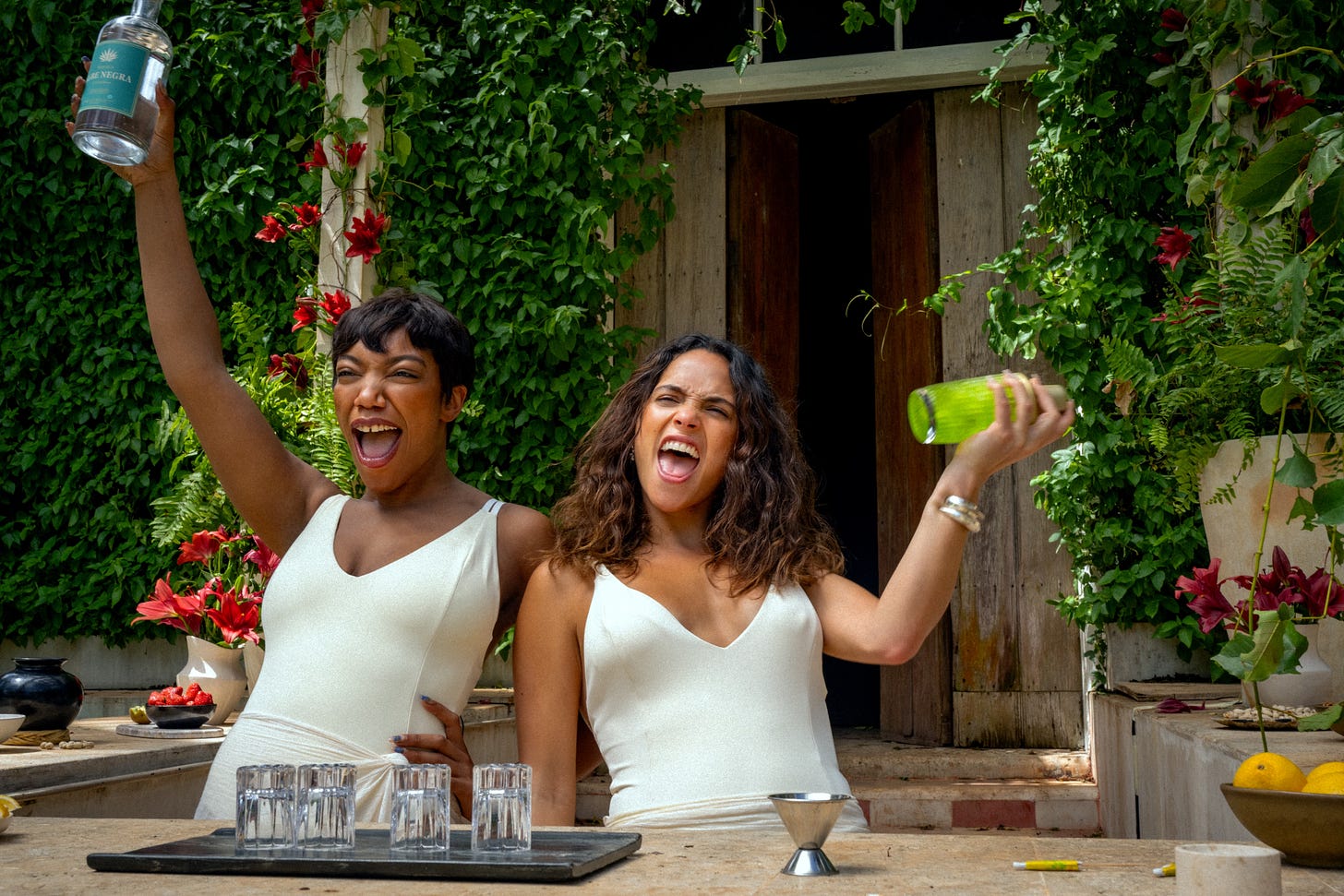Monday new releases: 26 August 2024
We Were Dangerous, Blink Twice and The Sitting Duck are all in cinemas



Welcome to this week’s “women fighting back against their abusers” triple-feature. These are all interesting films but it has been pretty draining watching them all in one week.
When I reviewed Taika Waititi’s Boy back in 2010 I said something like, it’s either the saddest comedy I’ve ever seen or the funniest tragedy. When you walk that fine line and audiences can’t tell which is which, then you have managed to do both things well.
Waititi went on to co-found the production company Piki Films and his movies The Hunt for The Wilderpeople and Jojo Rabbit were produced there, as well as The Breaker Upperers (Sami/van Beek) and The Mountain (House).
The Piki house style draws a lot on Waititi’s own preferred combination of social comment and anarchic humour. Wilderpeople was a wacky comedy about a traumatised young boy who watches his foster mum die; Jojo Rabbit was a wacky comedy about Hitler and the Holocaust; Breaker Upperers was a wacky comedy on the theme of heartbreak and The Mountain was a wacky comedy about a teenager who dies of cancer.
And now, arriving within weeks of the horrific and tragic report of the Royal Commission on Abuse in State and Church Care, we have We Were Dangerous, a film about female empowerment set in a 1950s New Zealand reform school for teenage girls.
It’s a comedy version of one of those institutions, given a comedy name – Te Motu School for Incorrigible and Delinquent Girls. In the opening sequence, it might as well be St. Trinian’s as Nellie (Erana James) and Daisy (Manaia Hall) have their escape plans foiled by mean old matron (Rima Te Wiata). Because of this failure of discipline, everyone is packed off to a tiny island in Lyttelton Harbour that was once a home for interned prisoners of war and (possible) lepers.
While We Were Dangerous tells an empowering story of female friendship and overcoming social injustice, it does so using the backdrop of the very real trauma and criminal abuse that occurred in those places. Classmates are mutilated in a makeshift sickbay to meet the demands of the patriarchal New Zealand authorities but those girls aren’t given real characterisations (or motivational flashbacks) like Nellie and Daisy. They are just motivational flotsam floating around in the background, like so many other examples of the real-world treatment girls like that would have experienced. They are alluded to – therefore acknowledged – but not attended to.
The film wants to be an uplifting story of feminist empowerment but because it doesn’t take the serious stuff seriously enough, it ends up as a romantic fantasy rather than being fully rounded.
I’m curious, too, about the title. It suggests that the story is being told from the point of view of the ‘dangerous’ girls, looking back on how they were perceived by the state, but the narration is by Te Wiata’s Matron – from a much more sympathetic viewpoint than she her character has in the film itself. Is the film suggesting that it was us – New Zealand – that are the “we” in We Were Dangerous? That would be interesting.
Watching Zoë Kravitz’ horror-thriller Blink Twice, I was reminded that in 1987 her mother, Lisa Bonet, starred in Alan Parker’s Angel Heart which traversed some similar thematic territory. That film also featured a character being tormented by slowly returning suppressed traumatic memories. As I recall, it also had a few chickens.
Reformed bad boy tech billionaire Slater King (Channing Tatum, very successfully playing against type) invites two broke flatmates (Naomi Ackie and Alia Shawkat) to join him and his rich and powerful friends at a party on his private island. There, they are welcomed into a world seemingly without consequences and where blacking out after a night of excess doesn’t seem that unusual.
But when they realise that all of the women at the party were procured in the same, seemingly random, way and that they don’t all come from the same privileged background as the men, things start to feel somewhat compromised and the confiscation of their phones on arrival was clearly not a contribution to their freedom to party.
It turns out that the sense of entitlement for these men – who include Christian Slater, Simon Rex, Kyle MacLachlan and Haley Joel Osment – goes a lot further than just expensive drugs, good food and fine wine.




